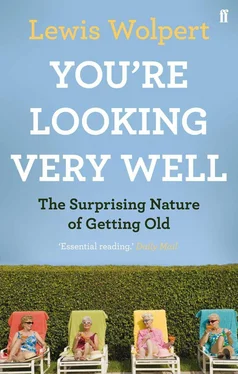A UK Study of Abuse and Neglect of Older People in 2006 found that in the past year about 227,000 people aged 66 and over living in private households reported that they had experienced mistreatment involving a family member, close friend or care worker. Mistreatment by neighbours and acquaintances was reported in about one third of cases. Overall, half of mistreatment involved a partner or another family member. About 10 per cent involved a care worker, and 5 per cent a close friend. Most of those responsible for physical, psychological and sexual abuse were men, while financial abuse was spread more equally between the sexes. Three quarters of those asked said that the effect of the mistreatment was either serious or very serious, and left the person feeling upset and isolated. About one third told nobody but most told family, friends, or a social worker or health professional. Very few informed the local authority or the police.
In developing countries there is no systematic collection of statistics about abuse, but crime records, journalistic reports, social welfare records and small-scale studies contain evidence that abuse, neglect, and financial exploitation of elders are much more common than these societies admit. A hospital manager in Kenya was quoted as saying: ‘Older people are a big headache and a waste of resources. The biggest favour you could do as an older people’s organisation is to get them out of my hospital.’
In healthcare, ageism presents serious problems as the National Service Framework for Mental Health applies only to people below the age of 65. This seems to be a clear case of age discrimination, particularly as dementia affects large numbers of people over 65. Those over that age receive lower-cost and inferior services to younger people, even if they have the same condition. Patients older than 65 are being denied treatments offered to younger people, either because they are too expensive or because they were not referred on by their family doctor.
There is considerable evidence of discrimination against the elderly in healthcare, with staff disbelieving older people’s accounts of their medical or clinical symptoms, or with these being disregarded as a natural condition of their age. Older hospital patients can be seen as financial risks: they are viewed less as human beings with health needs than as costly and inanimate ‘bed-blockers’. Physicians themselves and other healthcare providers may hold attitudes, beliefs and behaviours that are associated with ageism against older patients. Studies have found that physicians often do not seem to show concern in treating the medical problems of older people. There is evidence that more than a third of physicians erroneously consider high blood pressure to be a normal part of ageing, and do not treat the condition in their older patients.
The average size of care home for older people in England is 34, compared to nine places in homes for younger adults. Many of the old themselves believe that doctors view them less favourably than younger patients. Fewer than 10 per cent of older people with clinical depression are referred to specialist mental health services compared with about 50 per cent of younger adults with mental and emotional problems. Elderly stroke patients treated in the NHS do not get the same level of care as younger patients, who are scanned more quickly and more often. Mental health wards for older patients are less clean, more noisy and more violent than average.
Rabbi Julia Neuberger and many others have argued for legislation against such age discrimination. Older patients are less likely to have their symptoms fully investigated. A study by the Patients Association reported that some NHS nurses had been shockingly cruel to the elderly; some had been left without food or drink while others had been made to sleep in soiled bedclothes. It was estimated that there had been up to a million such incidents in recent years. Though there may be surgeries or operations with high survival rates that might cure their condition, older patients are less likely than younger patients to receive all the necessary treatments. It has been suggested that this is because doctors fear their older patients are not physically strong enough to tolerate the curative treatments and are more likely to have complications during surgery that may end in mortality. The approach to the treatment of older people is often concentrated on managing the disease, rather than preventing or curing it. Thousands are discharged from hospital too early.
Some sources suggest that ageism in the healthcare system starts in the medical schools where young people—who, of course, will never themselves be old—begin their education. Only 10 per cent of medical schools in the United States require courses in geriatrics and less than 3 per cent of physicians ever take any courses in this area. In the UK there are some medical schools that do not teach geriatric medicine. When actually interacting with older patients on the job, doctors sometimes view them with disgust and describe them in negative ways, such as ‘depressing’ or ‘crazy’. For screening procedures, elderly people are a bit less likely than younger people to be screened for cancers and so less likely to be diagnosed at early stages of their conditions.
Outside the healthcare system, Help the Aged reported that older people routinely tell them that they feel ignored and undervalued by their local communities. There needs to be much more energy and determination to reach those who are seldom heard‚ for example isolated older people and those living in poverty. By contrast, fortunately, many very old people are sustained by love and care of family and friends.
* * *
Some forms of ageism are described as ‘benevolent prejudice’ because the tendency to pity is linked to seeing older people as ‘friendly’ but ‘incompetent’. This is similar to the prejudice most often directed against women and disabled people. Age Concern’s survey revealed strong evidence of ‘benevolent prejudice’. The warmth felt towards older people means there is often public acceptance that they are deserving of preferential treatment—for example, concessionary travel. But the perception of incompetence means older people can also be seen as ‘not up to the job’ or ‘a menace on the roads’ when there is no evidence to support this. Benevolent prejudice also leads to assumptions that it is ‘natural’ for older people to have lower expectations, reduced choice and control, and less account taken of their views.
When older people forget someone’s name, they are viewed as senile, but when a younger person fails to recall a name, we usually call that a faulty memory. A newspaper recently reported that the actress Keira Knightley was having something akin to a ‘senior moment’ as she came off a plane from London, due to the seven-hour flight and a five-hour time difference. She had just forgotten something, but this phrase is a mild example of ageism. Use of the term implies that she was suffering from one of the problems that afflict the elderly. I am all too well aware of them. But the young also forget things.
When an older person complains about life or a particular incident, they are called cranky and difficult, while a younger person may just be seen as being critical. It is quite widely assumed that older people might not want the sorts of life chances that younger people have and so it is ‘natural’ for older people to have lower expectations, and less account is taken of their views. Fortunately, as we have also seen, older people are further stereotyped as moral and admirable, and an overwhelming majority of people agree that they should be valued and cherished. But although most people think older people should definitely have equal access to health and care, this is often not the reality.
Читать дальше












